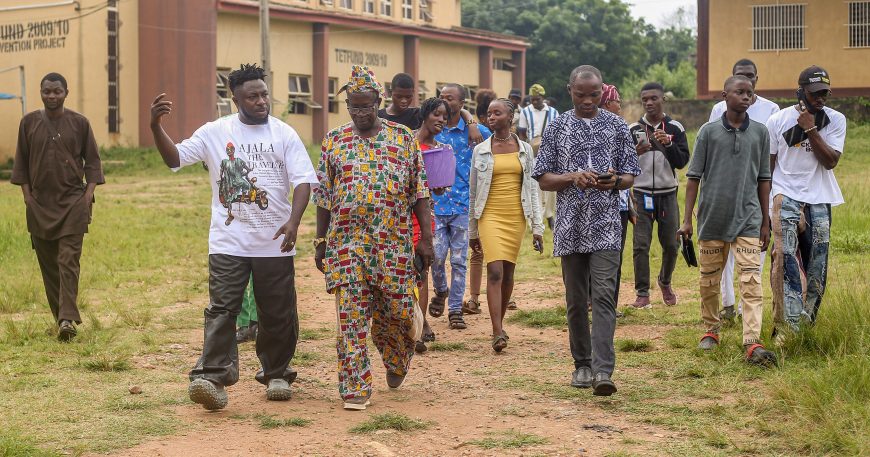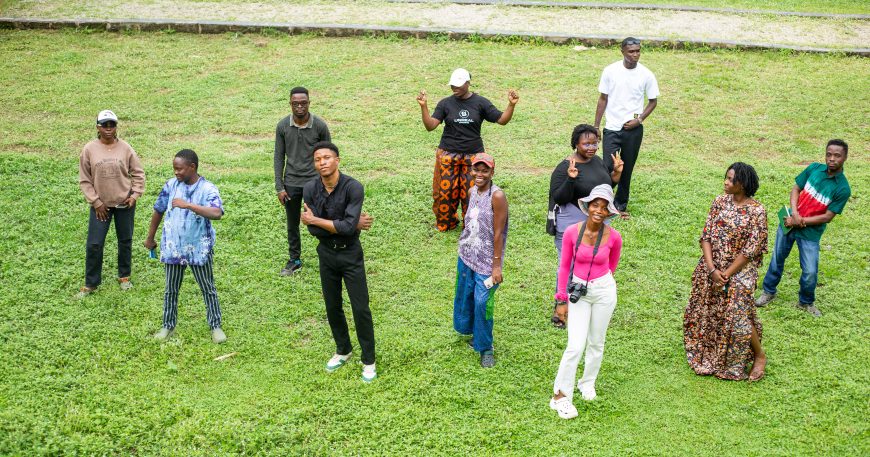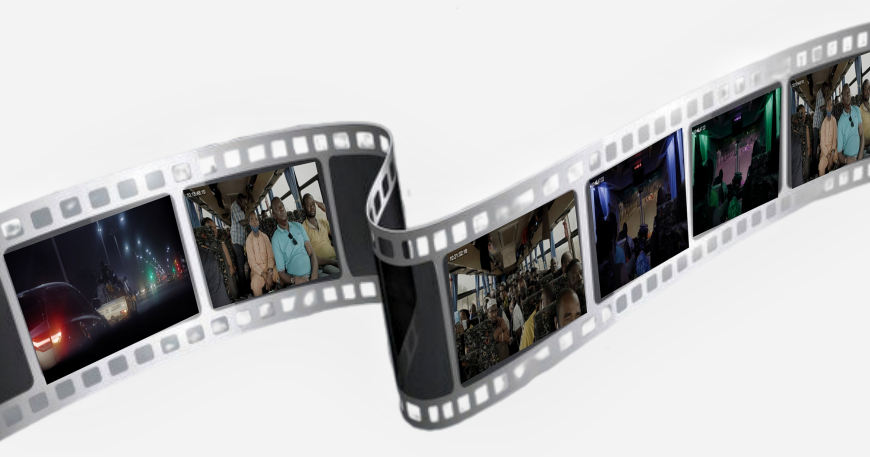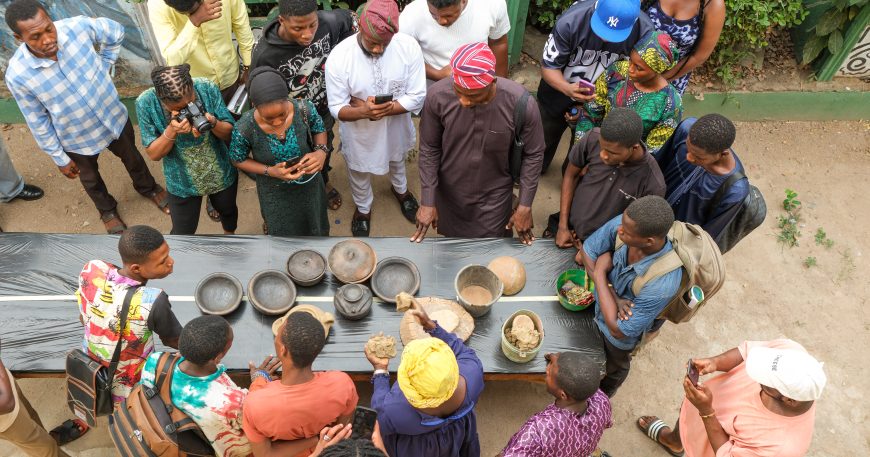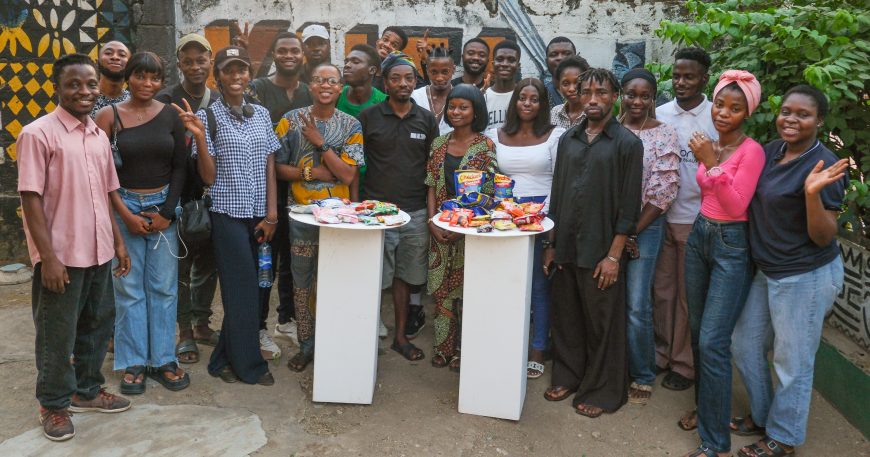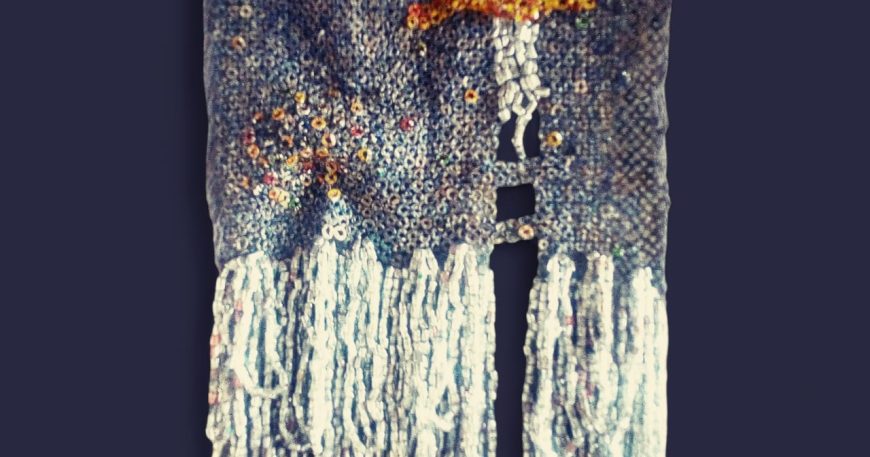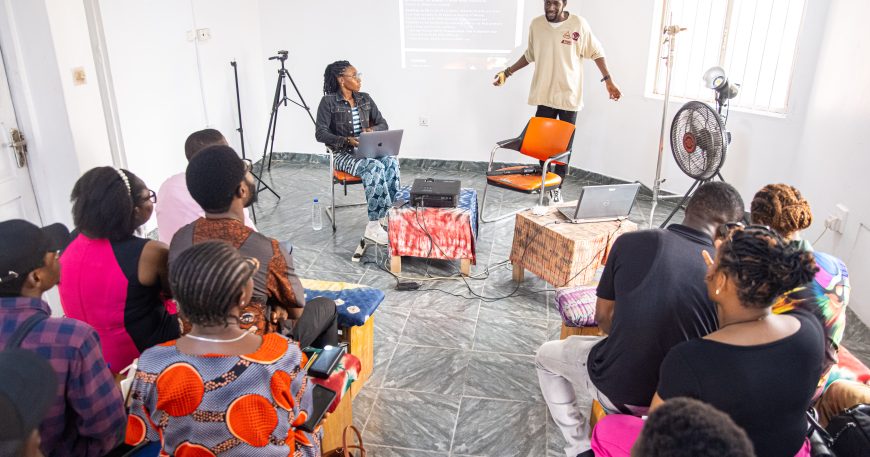Canvas Club: Metal Sculpting in Contemporary Art
On Friday, August 29th, 2025, Dotun Popoola hosted our first Canvas Club itinerant at the Art & Industrial Design Department, Moshood Abiola Polytechnic, Abeokuta. The session hosted by Dotun Popoola on Metal Sculpting in Contemporary Art began with a studio tour led by the school’s HOD, Mr. Dunni Adesiji, which engaged participants, students, and external guests. Afterwards, Iyanu Ipadeola, a team member from Kuta, introduced Kuta Arts Foundation and highlighted the community’s work within and beyond Abeokuta, especially emphasizing how Canvas Club serves as a key art education program for emerging artists to acquire industry knowledge and connect the art world with schools. Then, the session began as Oluyomi Akinnagbe, Kuta’s Program Manager and Assistant Creative Director, warmly and humorously introduced the guest facilitator, Dotun Popoola, to the participants. He then shared his challenging but inspiring journey into the art world and explained how self-innovation and reinvention of his medium gave him an edge within the art scene and beyond his peers. He continued with his explanation that metal sculpting is the artistic process of creating three-dimensional objects from metal. He often goes to the junkyard to find metals, both soft and hard, because each serves different purposes in his work. Close inspection of his pieces, especially the ears, shows he uses some soft metals like copper. Understanding the properties and differences between these metals helps him use them effectively. Metals are a class of chemical elements and alloys characterized by their metallic bonding and physical properties such as high density, strength, malleability, ductility, thermal and electrical conductivity, and a reflective surface called metallic luster. They are usually extracted from mineral ores through processes like smelting and refining. Metals are broadly categorized into ferrous metals (iron and its alloys) and non-ferrous metals (such as copper, aluminum, zinc, and bronze). Historically, the discovery and use of metals marked key stages in human development, evidenced by the Copper, Bronze, and Iron Ages. Today, metals continue to be essential in industrialization, engineering, architecture, medicine, and the arts, serving as both scientific and cultural pillars of human progress. “Metal can be very soft than clay. To make metal soft, you need to be a Hardworking Artist. You must understand the dynamics of your practice.” During the session, he gave the above quotes and explained how he uses his works to solve ecological and climate change within his environment. He said,“ My works are influenced by these modern themes.” Sustainability Identity Urbanism Climate change He also reflected on how indigenous Benin bronze casting, ancient art practices, and traditions influence his works. After Dotun’s presentation, guests asked questions that were peculiar to the current realities and practices as students and emerging artists who are trying to understand their practice and navigate the art spaces. About Dotun Popoola Dotun Popoola is a contemporary Nigerian artist (sculptor) who specializes in synergetic metal sculpting. He creates pieces of artwork from discarded scrap metals. His works are focused on transforming trash to treasures, rubbish to rubies, and waste to wealth by repurposing wastes that threaten the ecosystem. Popoola works primarily with scrap metal, where creating animal forms is his favourite way to use the medium. Some of his works were exhibited at ART X Lagos. He had a solo exhibition called “Irin Ajo” (Journey) in Signature Beyond Art Gallery, Lagos, where he presented around 24 metal works of his.


